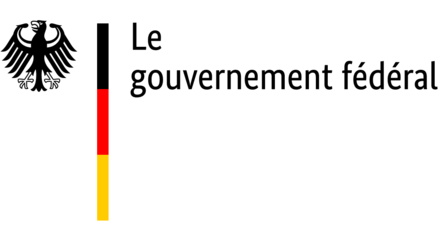
Immigration of skilled workers: The current situation in Germany
We need skilled immigration
25 September 2017 - People come to Germany for various reasons. The large number of refugees in recent years has led to people wondering whether it still makes sense to recruit more skilled workers from abroad. A survey by the Bertelsmann Foundation entitled “Culture of Welcome facing a stress test” shows that people haven’t forgotten about the issue of the immigration of skilled workers. A third of those surveyed continue to attach importance to the immigration of qualified professionals in order to tackle the skills shortages on Germany’s labour market1. This is because the skills shortage has emerged as the most significant business risk in many regions and sectors.
Immigration: Who is coming to Germany?
It is necessary to distinguish between two groups: EU citizens, and foreign nationals from other countries (“third country nationals”). According to figures from the Central Aliens Register, a total of 1,307,253 people migrated into and 664,356 away from Germany in 2016. Of those who arrived in 2016, there were 634,036 nationals (48.5%) from other EU countries, and 673,217 nationals from outside the EU (51.5%). As a consequence of the high influx of refugees from Syria and Iraq, the leading category of immigrants from outside the EU, at 43.4%, was those granted residence permits on grounds of international law and for humanitarian and political reasons. However, the data also reveal a clear year-on-year increase in the issuing of residence permits for the purpose of work. As of 31 March 2017, a total of 182,609 third country nationals were listed in the Register as holding a residence permit for the purpose of working in Germany.
Developments in migration law
This means that the recruitment of skilled workers from abroad is still regarded as a practical way of tackling the present and future skills shortages. However, there is also the question of how attractive Germany is. Immigration from within the EU is subject to the rules governing freedom of movement. With regard to the immigration of qualified professionals from non-EU countries, the German legislature has adopted various measures to promote this in recent years: In 2012, the EU Blue Card (cf. Section 19a of the Residence Act) and the Federal Recognition Act entered into force. In 2013, they were followed by the revised Employment Ordinance, and in 2015 by the Act to Improve the Assessment and Recognition of Professional Qualifications Acquired Abroad (Section 17a of the Residence Act), which opened up the possibility of access to the German labour market for non-graduate occupations. As the OECD2 found back in 2013, these developments in migration law have made Germany one of the OECD countries with the least restrictions on migration of university graduates for the purpose of work.
Welcome Service in the regions
In addition to the changes to the rules, other factors also play a key part in making Germany more attractive as a destination for foreign workers. It is equally important to enable the migrants to participate in German society and to offer them access to training. For this reason, Germany’s various municipalities and regions – like a host of other stakeholders – run Welcome Centers. These offer support to skilled workers on all issues from arriving in Germany to coping with day-to-day life. In many cases, small and medium-sized enterprises can also make use of help with attracting skilled workers from abroad.
The Welcome Center concept was an idea suggested by the Federal Government’s Integration Advisory Council. The first German Welcome Center opened in Hamburg in 2007. Since then, many other towns and cities, such as Berlin, Stuttgart, Frankfurt and Essen, have opened similar offices. With a total of ten Welcome Centers, the state of Baden-Württemberg has funded the most Welcome Centers.
Sources and notes:
[1] Bertelsmann Foundation 2017, Willkommenskultur im „Stresstest“ – Einstellungen in der Bevölkerung 2017 und Entwicklungen und Trends seit 2011/2012, Gütersloh.
[2] OECD 2013b: Recruiting immigrant workers: Germany, Paris.
Do you have any questions?
Let us advise you on your opportunities to work and live in Germany. Our experts will support you with questions regarding job search, visa, recognition and learning German.
You can find out more about the various contact options by clicking on one of the icons in the bar below.
